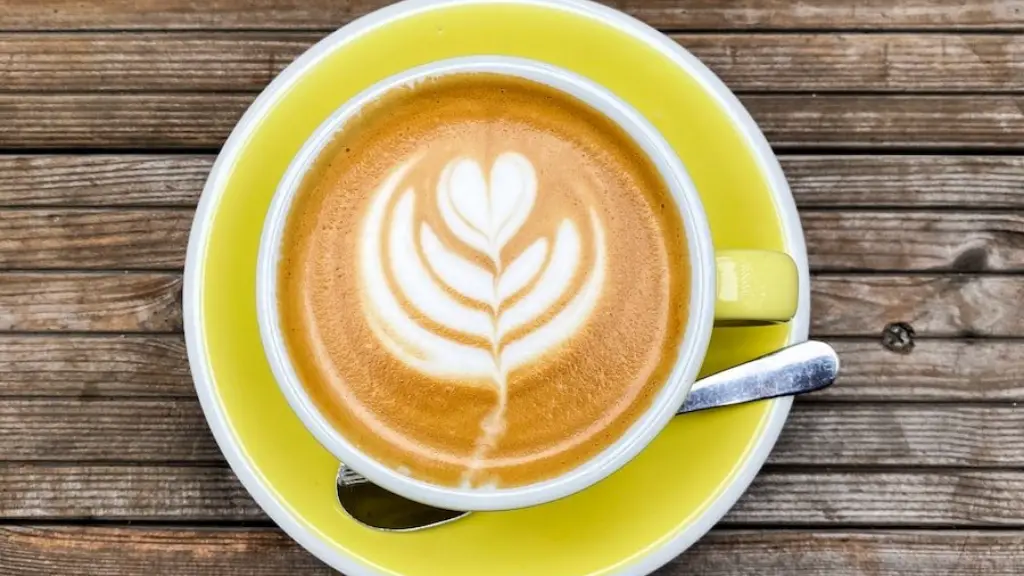Coffee is a staple part of many people’s diets, with around 79 percent of U.S. adults drinking it daily. But why does it make your heart rate increase?
Numerous studies show that consuming coffee stimulates the heart and increases blood pressure. Research has also shown that caffeine, a chemical found in coffee, can cause the heart to beat faster. Studies suggest that this effect is more pronounced in those who don’t drink coffee on a regular basis.
Dr. Harold L. Miller, a cardiologist at the Heart Institute in Los Angeles, explains, “Caffeine increases the breakdown and release of adrenalin, which is a hormone that increases your heart rate and makes it pound faster.” Adrenalin is a powerful stimulant, and when it is released into your bloodstream, it causes your heart to beat faster and harder.
This can have some beneficial effects, such as improving your reaction time and giving you a boost of energy. However, if you are not used to drinking coffee, it may cause your heart rate to increase too dramatically, which could lead to an uncomfortable or dangerous situation.
Miller continues, “The effects of caffeine on the heart vary widely from person to person and depend on how often they drink it. For example, someone who drinks coffee every day may only experience a slight increase in heart rate after drinking it, whereas someone who does not consume coffee on a regular basis might experience a much larger and more noticeable increase. This can be dangerous if the person is not prepared for it.”
Therefore, if you plan on drinking coffee and you are not a regular coffee drinker, you should be aware of the potential effects it could have on your heart rate. It is important to keep in mind that, like all stimulants, caffeine can have unpredictable results and can be dangerous if consumed in large doses.
Reactions to the Stimulant
Coffee and caffeine are both powerful stimulants and can have an effect on your body in multiple ways. While some people may experience a decrease in their heart rate with higher doses of coffee, others may find that their heart rate increases too much. It is important to understand how your body responds to coffee and caffeine in order to exercise caution when consuming it.
Dr. Miller notes, “People react differently to coffee and caffeine, so it’s important to pay attention to your body’s reaction when consuming these substances. Some people are more sensitive to the effects of coffee and caffeine, and for those people, it is probably best to stick to low doses and not drink more coffee than recommended by your healthcare provider.”
It is also important to note that caffeine is addictive and can lead to increased tolerance and dependence. Regularly consuming more and more caffeine in order to maintain the same effects can lead to an increased heart rate and even more dangerous side effects. It is essential to monitor your coffee consumption and recognize the signs of addiction.
Recommendations and Conclusion
If you are concerned about your heart rate increasing after drinking coffee, consider speaking to your healthcare provider. It is important to be aware of your body’s responses to coffee and caffeine, and to exercise caution when consuming these substances. Your healthcare provider can provide advice and tips on how much coffee is safe to drink and how to monitor your intake.
It is also important to be aware that your body might react differently to coffee if you’re not a regular drinker. This can range from a slightly increased heart rate to potentially unsafe levels. Always make sure to monitor your caffeine intake and be aware of the potential effects it can have on your body.
Additional Research
The changes in heart rate caused by drinking coffee can be beneficial in some cases, but it depends on the individual and how they react to caffeine. Research has shown that consuming coffee on a regular basis can improve athletic performance and reaction time, but it can also increase risk of heart attack and stroke in those who are prone to them.
It is important to understand the effects coffee and caffeine can have on your body and to listen to your body’s responses. If you are concerned about your coffee consumption or your heart rate, consult with your healthcare provider for advice.
Other Effects of Coffee
Coffee can also have an effect on the brain, as studies have shown that consuming coffee can improve alertness, focus, and concentration. Additionally, research has linked coffee consumption to improved mental health and reduced risk of depression.
Coffee can also affect your mood, with some studies showing that drinking coffee can alleviate symptoms of stress. Other research suggests that consuming coffee can boost energy and help improve overall mood. However, it is important to note that these effects can vary greatly from person to person.
Side Effects
While coffee has multiple benefits, it is important to be aware of the potential side effects it can have. Consuming too much caffeine can lead to jitteriness, anxiety, irritability, and difficulty sleeping. Additionally, drinking too much coffee can cause an upset stomach, headaches, and an irregular heart rate.
With any substance, it is important to know the potential effects it can have on your health and body. It is essential to understand your body’s response to coffee and caffeine in order to monitor your consumption and stay safe.
Life Balance
Ultimately, it is important to understand that while coffee can be beneficial, it can also have adverse effects. Your healthcare provider can provide advice and guidance on how to stay safe and maintain a healthy balance of coffee consumption. Balance is key when it comes to caffeine consumption, and it is important to understand the potential effects of coffee before drinking it.



